
Hadassah Edelkopf, James Barr, Brian Schmid, Kevin McKenna, Jacob Locascio, Emma Desiderio, Andrew Abate and Natalie Tsur contributed to this report.
By JACOB LOCASCIO
Juan González, journalist and co-host of Democracy Now!, spoke as the Schomburg Scholar on March 24, and criticized two bills proposed by lawmakers regarding the future of Puerto Rico’s territorial status.

The two bills involve the options of statehood or self- determination for Puerto Rico. Statehood would facilitate the process of Puerto Rico’s integration into the Union as an official state. Self-determination would allow Puerto Ricans to vote and dictate their future political path, which may or may not involve statehood.
González has taken a critical stance on both options.
“Both proposals that have been submitted have their problems,” said González.
The statehood proposal, formally called “The Puerto Rico Statehood Admissions Act,” has been introduced by Rep. Jenniffer Gonzalez, Puerto Rico’s non-voting representative and Rep. Darren Soto of Florida. The bill would establish “a framework for admission,” according to Soto in a press conference.It would include a ratification vote, which President Biden would announce the results of, and would allow Puerto Rico to elect their own senators and representatives.
Puerto Rico is an island in the northeast of the Caribbean Sea. It belonged to Spain until Dec. 10, 1898, when they gave it to the United States as part of the Treaty of Paris to end the Spanish-American War. Puerto Rico does not have the power to declare itself an independent country or state; it is a U.S. territory until the United States decides otherwise. Puerto Ricans also do not have some of the same rights as regular American citizens; they cannot vote in presidential elections.
The first people to inhabit Puerto Rico were known as the Taino, who settled in the area about 1,000 years before the Spanish had arrived on the island. In the late 15th century, there was a range of about 50,000 Indigenous people living on the island that is now Puerto Rico. Today, there are about 3.1 million people living on the island, and more than 5 million on the mainland U.S.
The statehood bill has garnered significant bipartisan support. According to González, the bill has 49 cosponsors with “quite a few democrats and quite a few Republicans” backing the bill.
However, González believes that the U.S. Congress will never accept such a bill so long as Puerto Rico retains its cultural independence.
“The U.S. Congress will never admit a state into the union that teaches its children in another language and conducts its courts in another language,” said González.
Since Spanish is the primary language of Puerto Rico, González thinks that the cost of statehood will be too high for Puerto Ricans if they are forced to switch to English.
“You are asking to Puerto Rican people in essence to commit cultural harikari,” he said.
The other bill, officially the Puerto Rico Self-Determination Act of 2021, gives Puerto Ricans more freedom to choose the direction of their country. According to a press release from Sen. Robert Menendez of New Jersey, the bill will create a “status convention,” include a delegate election, a collaboration with a Bilateral Negotiating Commission, a referendum vote, and a Congressional Recognition.
We support a process of self-determination for Puerto Rico. Why?
1. Statehood isn't the only option. There's also independence or free association.
2. It's not clear which of these options a majority of Puerto Ricans support.
(1/7)
— Rep. Alexandria Ocasio-Cortez (@RepAOC) March 19, 2021
Rep. Nydia Velázquez and Rep. Alexandria Ocasio-Cortez, both representing New York City districts, supported the bill. Velázquez said in an interview with WNYC ‘s Tanzina Vega, explained that the self determination bill “recognizes the inherent right of the people of Puerto Rico to determine their own political future.” Velázquez defines “self-determination” as “to come together and decide what their best political path forward is for them to come and define in a status convention, the different formulas, the different options, and put that to the peoples to decide through a direct vote.”
González recognizes that the major flaw in the bill proves to be its impotence in pushing meaningful legislation. According to González, the Puerto Ricans can vote to decide their own future, but nonetheless Congress does not have to accept the results of the election.
“If we’re going to have self determination you’re going to have to agree beforehand to accept what we want,” he said.
The bill introduced by Menendez, Velázquez and Ocasio-Cortez, is also co-sponsored by senators Bernie Sanders, Roger Wicker, Sherrod Brown, Cory Booker, Kirsten Gillibrand, Elizabeth Warren and Ed Markey, according to Menendez.
González said that the main reason the self-determination bill was pushed so quickly was that the senators representing the bill “were afraid the other bill [on statehood] was gaining steam.”
Regardless of the specific problems that plague each bill, González believes that both proposals are doomed to fail in Congress due to partisan divide.
“Neither bill is going to go anywhere because the democrats and split and the Republicans are split,” he said.
Democracy in Puerto Rico
In the meantime, political power in Puerto Rico is changing on the island. In November 2020, fewer Puerto Ricans voted in local elections.
“The two party system of Puerto Rico has collapsed,” González said.
If you think Puerto Rican Statehood will provide Democrats with new reps and senators, keep in mind Puerto Rico's Governor, Wanda Vásquez, and their non-voting rep in the US House, Jenniffer González, are both Trump supporters. #PuertoRico ?? https://t.co/2FCcZxGryb
— Adam Friscia (@AdamFriscia) October 27, 2020
According to González, 84% of Puerto Ricans used to vote. This number has recently dwindled to 54%.
“That’s no way to get statehood even if you want to claim that your numbers show you have the majority,” he said.
González explained that the reason for the declining number or voters is depopulation. According to González, there has been a 14% population decline in Puerto Rico in recent years.
Many Puerto Ricans have moved to the US mainland over time for different reasons, including constant hurricane damage, so the east coast is actually very populated with Puerto Ricans. In fact, New Jersey and surrounding land is perhaps the most heavily populated in terms of Puerto Rican residence, as New York City (723,621 Puerto Ricans), Philadelphia (121,643), and Newark, N.J. (35,993) are three of the top six most populated Puerto Rican cities in the United States.
[PHOTO GALLERY: Puerto Rico destroyed after Hurricane Maria. Tap to see images.]
The overall population on the island of Puerto Rico itself has decreased over time, as has Puerto Rican residents there. Specifically, the overall population of Puerto Rico decreased by approximately 14.3% (around 600,000 people) from the 2010 census to 2019, and there are currently many more Puerto Ricans on the United States mainland (5,828,706 in 2019) than Puerto Rico itself (3,193,604).
Given that, González expressed his belief that Puerto Rico is inherently an independent nation due to its distinct culture, language and territory and therefore the United States “cannot treat it like you would any other piece of land.”
“Whatever solution is found long term has to recognize the fact that the United States is one nation and Puerto Rico is another nation,” he said.
RELATED LINKS:
NBC NEWS: New bill on Puerto Rico status introduced by Reps. AOC, Velázquez, Sen. Menendez
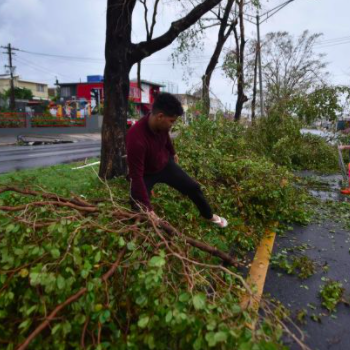
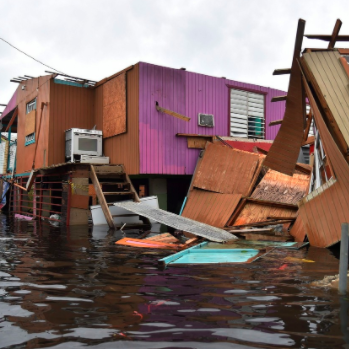
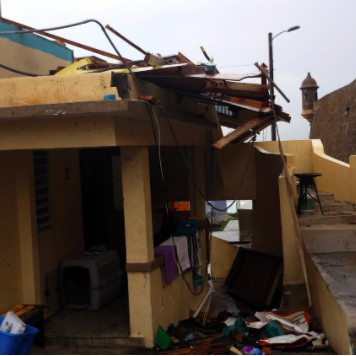
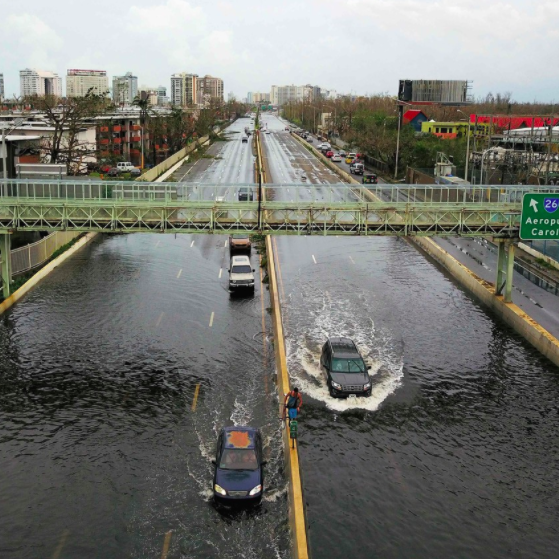
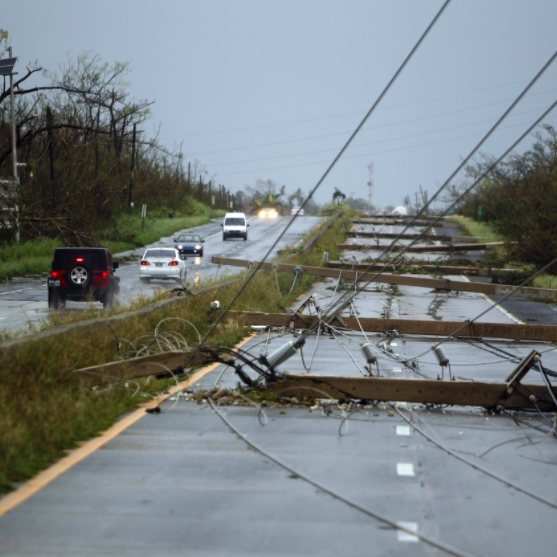
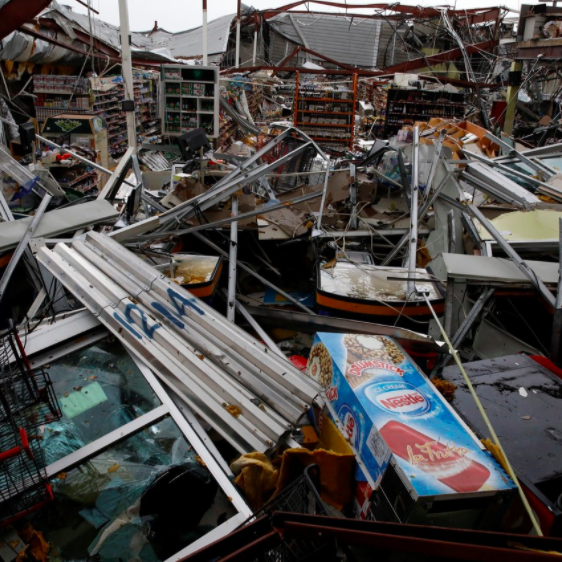
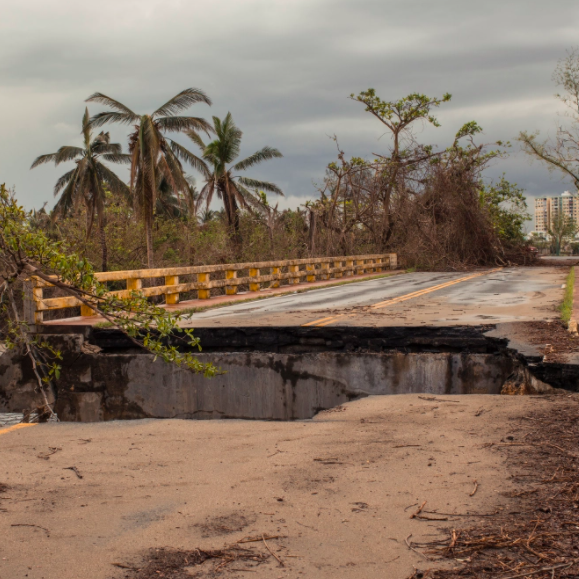
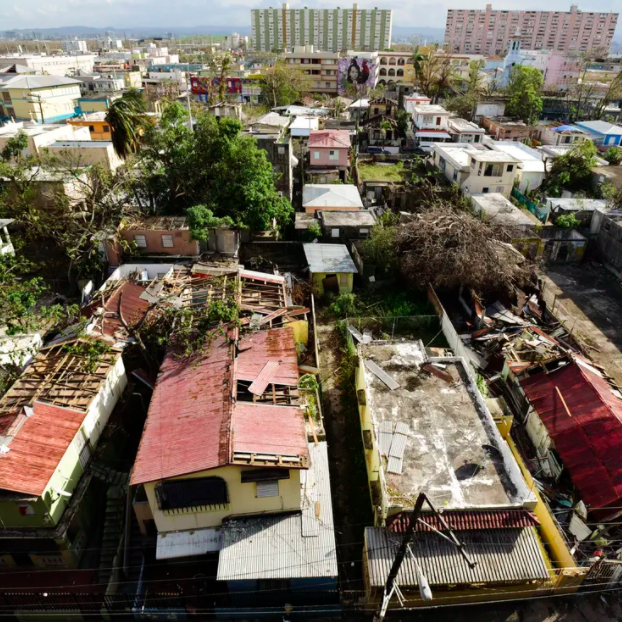
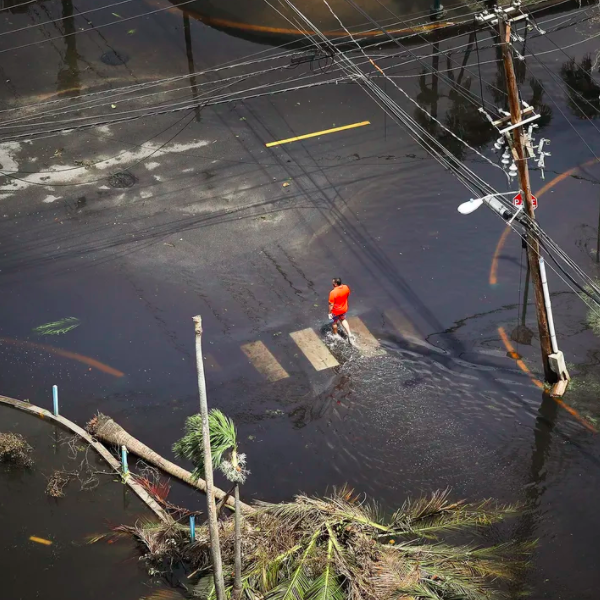
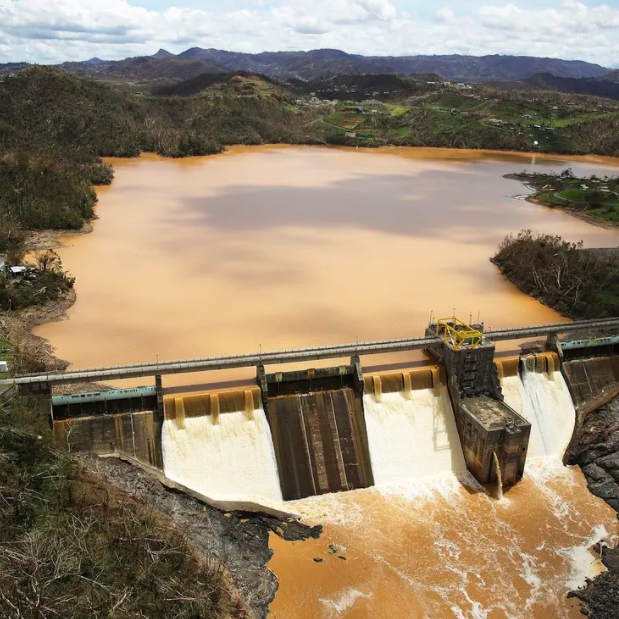
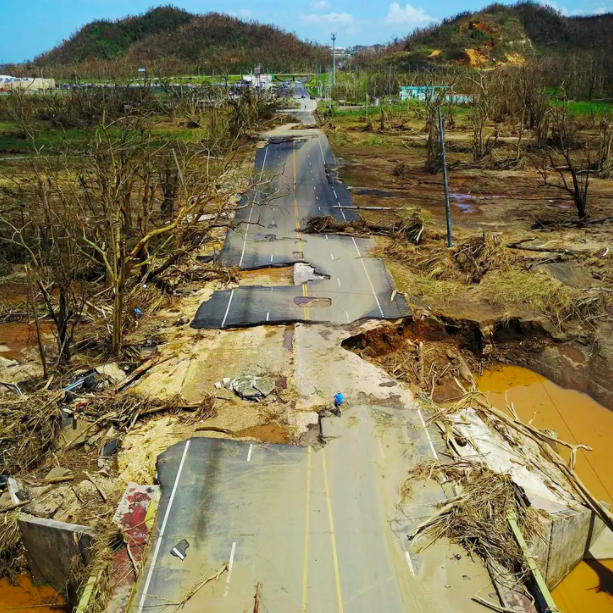
I really liked this article, it was very informative!! I liked the tweets good find! I like how they talk about the main points of Juan gonzalez’s take on Puerto Rico.
Awesome work! It’s great to see all of our contributions together along with some really engaging photos and tweets and a well-balanced mix of background info and information Juan Gonzalez shared with us.